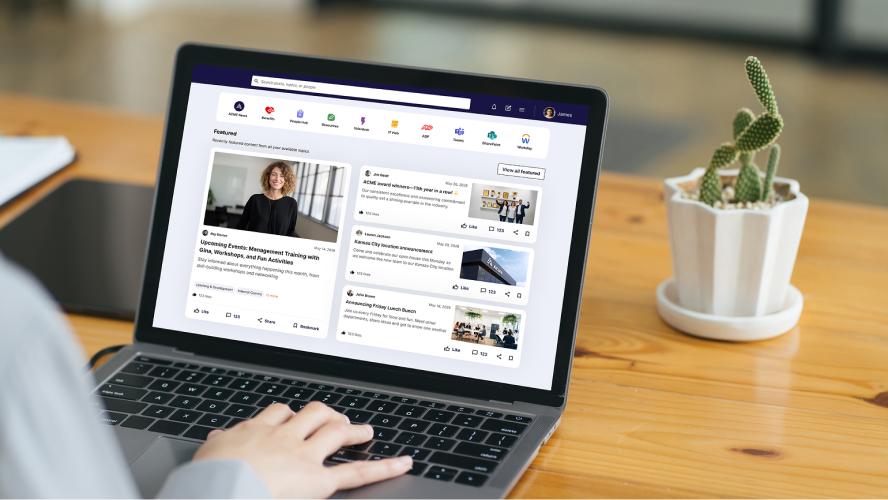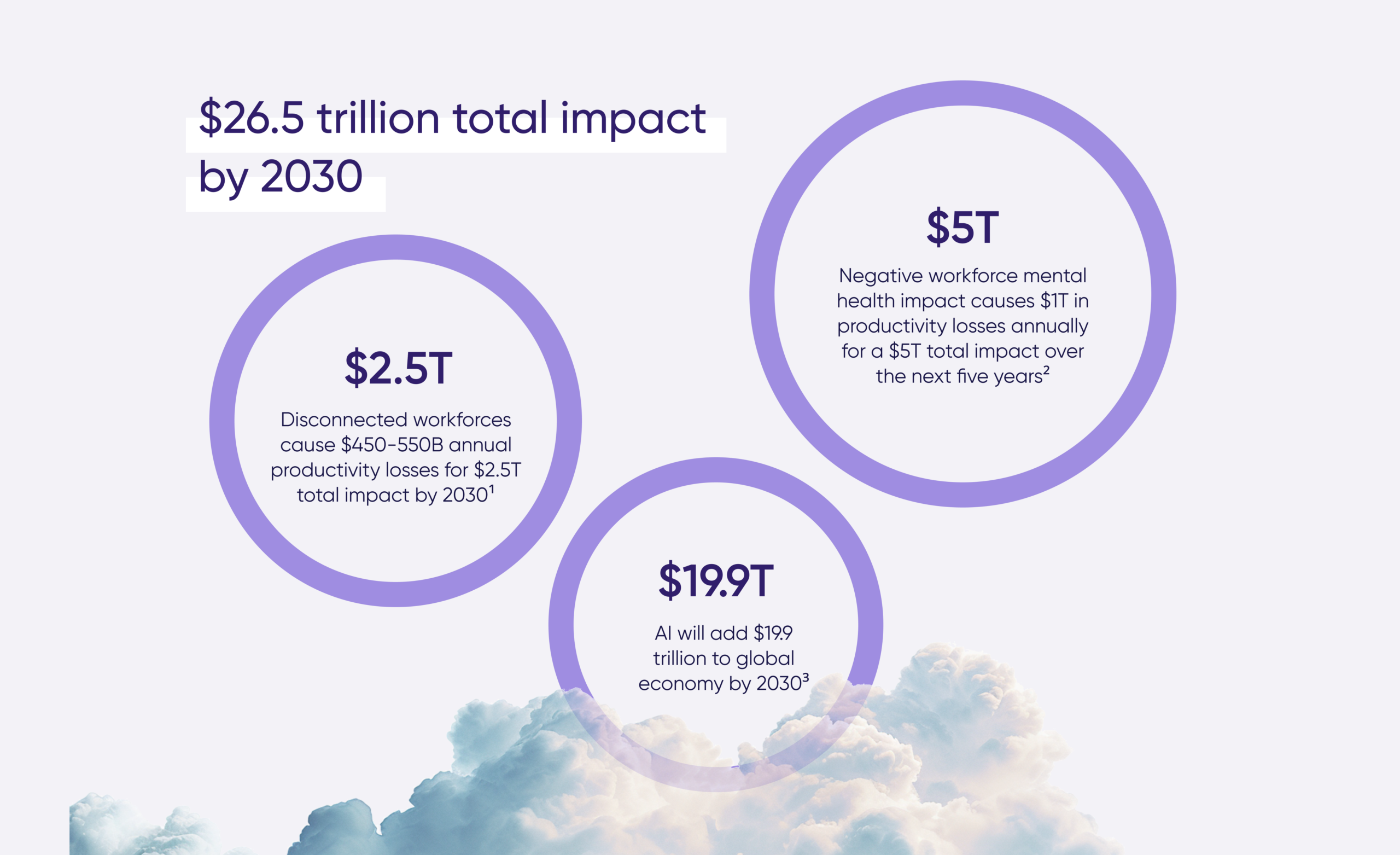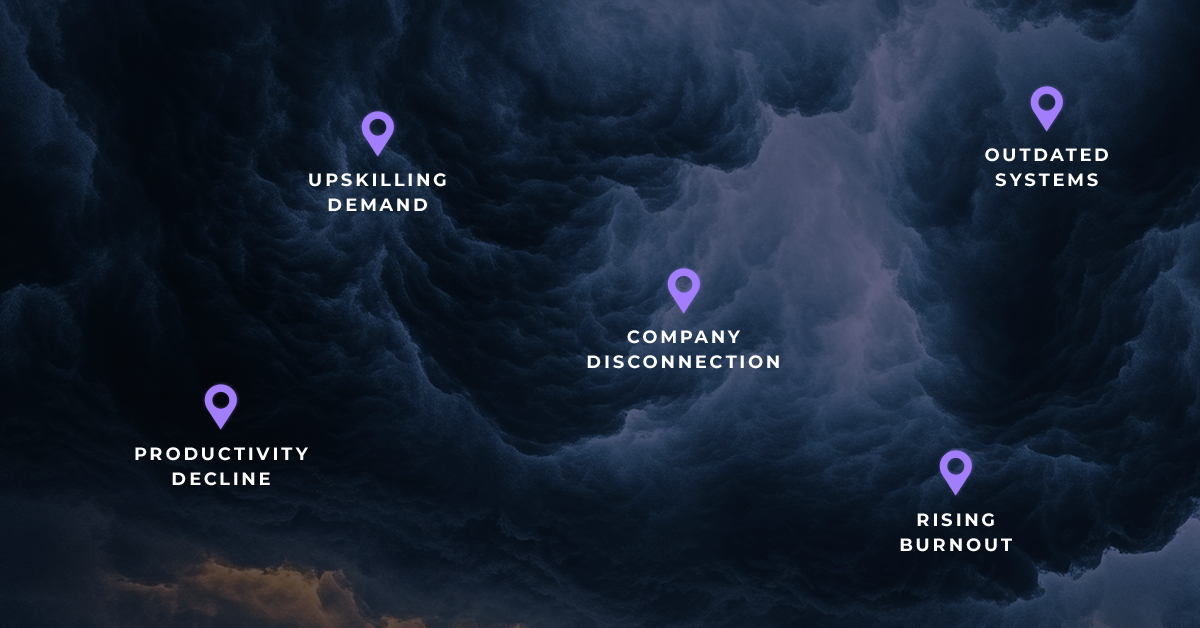Table of Contents
In the modern workplace, social network platforms were initially celebrated for their potential to revolutionize how employees connect and collaborate. When first deployed, these platforms offered a digital ecosystem that promised to foster community, enhance communication and streamline collaboration – just like they have for much of the world outside the workplace. However, as time passed, many organizations fell into the trap of viewing the deployment of these technologies as the ultimate solution, rather than as a continuous journey of innovation and enhancement.
The Early Promise and Subsequent Disillusionment
Workplace social networks initially delivered on their promise by providing a centralized space for employees to interact, share ideas, and build a sense of community. These platforms were seen as the digital equivalent of the office water cooler, a place where spontaneous conversations and valuable connections could happen. However, this initial excitement was short-lived for many organizations. As these platforms aged, they struggled to maintain relevancy inside the enterprise and failed to consistently provide updated, meaningful content in a way that engaged the workforce.
Instead of evolving to meet the changing needs and preferences of employees, these platforms often became static repositories of corporate communications. The result was a shift from vibrant digital communities to less personalized communication channels, failing to deliver the unique and engaging experiences that had been promised.
The Impact of Meta’s Workplace Retirement, which Comes at an Interesting Time for Employee Experience Platforms (EXPs)
Recently, Meta announced the retirement of its Workplace platform, prompting organizations to face a significant decision: should they perform a simple lift-and-shift to another platform, or take this opportunity to design and deploy a different solution [or set of solutions]? You can read more about Meta’s announcement here.
This announcement has placed many organizations at a crossroads, compelling them to rethink their approach to EXP. Frankly many were already at a crossroads due to the rapid adoption of Generative AI (GenAI), which is swiftly and dramatically changing how we work, learn and create both inside and outside the workplace. We at Mercer have begun working with our clients to experiment with how GenAI can transform a social portal- and email-centric approach to interacting with the workforce to a bot-centric approach. These organizations have also begun using these same GenAI tools to clean up the underlying knowledge (e.g., localized policies, answers to FAQs, courses, job profiles) they use to respond to prompts from the workforce or convey information via targeted campaigns.
Technology as a Delivery Mechanism, Not the Experience
It’s crucial to understand that these platforms are not inherently flawed. The problem lies in how they are utilized and maintained. Social network platforms for the workplace are powerful tools, but their impact is entirely dependent on the experiences they deliver. Organizations must shift their mindset from seeing the deployment of a technology as the endpoint to recognizing it as the beginning of a continuous process of innovation and personalization.
Modern employee-centric digital properties are not about creating another legacy intranet or an ungoverned digital water cooler. They are about creating digital tethers back to the business, providing a dynamic two-way communication channel. These platforms should enable companies to deliver personalized, individualized, and meaningful interactions, transactions, communications, and connections. At the same time, they should provide employees with the opportunity to reciprocate, connect, and communicate in ways that are relevant and engaging to them.
Moreover, these platforms unlock the ability to digitally guide employees through their journeys. Where disparate systems once created confusion, these modern platforms now orchestrate more seamless employee journeys. Whether it’s onboarding, growing a family, or advancing a career, these platforms should feel less like work tools that employees must use and more like employee tools they get to use.
The Path to Meaningful Digital Experiences
To truly leverage the potential of workplace social network platforms, organizations need to focus on continuously innovating and delivering experiences that are tailored to the individual needs and preferences of their workforce. This involves:
1. Regular Content Updates:
Keeping the platform fresh with new and relevant content that resonates with employees.
2. Personalization:
Using data and analytics to understand individual preferences and deliver personalized content and experiences.
3. Interactive Features:
Incorporating features that facilitate genuine interaction and engagement, rather than just broadcasting corporate messages.
4. Feedback Loops:
Creating mechanisms for employees to provide feedback and share their experiences, ensuring the platform evolves in line with their needs.
5. Integration with Other Tools:
Ensuring the platform integrates seamlessly with other digital tools and workflows, enhancing its utility and relevance.
6. Employee Journey Design:
Creating unique yet scalable experiences that address the moments that matter for your workforce, such as onboarding, growing a family, or advancing in their careers.
7. Digital Communications Skills:
To deliver on the first 6 actions on this list, you need people with the expertise (e.g., content creators, campaign managers, data analysts), time and space to drive value from the platform
Organizations that excel in leveraging these platforms to deliver personalized and meaningful digital experiences are those that view technology as a means to an end, not the end itself. By continuously innovating and focusing on the employee experience, these organizations can fulfill the original promise of workplace social networks, transforming them from static communication channels into vibrant digital communities.
Conclusion
The key takeaway is that workplace social network platforms are only as impactful as the experiences they deliver. They are not the experience itself but rather the delivery mechanisms for the experience. Organizations must embrace a mindset of continuous innovation and personalization to ensure these platforms remain relevant and valuable. By doing so, they can transform their digital ecosystems into dynamic, engaging, and personalized environments that truly enhance the employee experience and foster a deeper connection between employees and the organization.
About the Author Ryan Malkes is a seasoned GenAI enthusiast and delivers GenAI services for North America at Mercer. With extensive expertise in digital transformation, Ryan collaborates with technology vendors, enterprise clients, and service providers to design innovative solutions for complex workforce challenges. Ryan came to Mercer through the acquisition of Leapgen, a Global HR Transformation Firm. During his tenure at Leapgen, he helped establish the company’s Workforce Experience Practice and steered Digital HR Programs for some of the world’s most prominent brands. Holding a Master’s of Science in Psychology, specializing in Industrial and Organizational Psychology, he leverages insights into human behavior and organizational dynamics to enable deep and meaningful change. As a speaker, Ryan passionately explores the transformative potential of Gen AI in revolutionizing workforce experiences and digital HR strategies, inspiring impactful advancements in the field.
Table of Contents
Related posts
Subscribe via Email
Subscribe to our blog to get insights sent directly to your inbox.
Related posts

Sign up to receive the latest news and resources from Firstup
Firstup delivers personalized communication and data insights to improve the employee experience at every moment that matters





